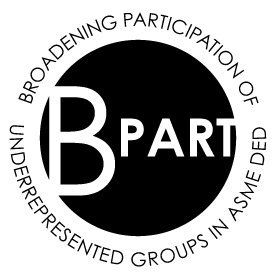Workshop 9: Effective Technical Communication:
The Assertion-Evidence Approach
ASME 2017 International Design Engineering Technical Conferences (IDETC)
and Computers and Information in Engineering Conference (CIE)
August 6-9, 2017, Cleveland, OH, USA
Type:
Workshop
Duration:
Half Day
Location: To be decided
Date:
Sunday, August 6, 2017
Time:
1:00pm - 6:00pm
Cost:
Workshops are complimentary. However only those registered for IDETC/CIE are eligible to attend a workshop.
Presenter(s): Michael Alley
Note:
Registration for this workshop is being handled separately from the main conference registration. If you are interested in attending this workshop, please complete the workshop survey via the following link. Even if you register through the IDETC conference website, you are not guaranteed admittance to this workshop. You must apply through the survey link and be admitted in order to attend.
https://www.surveymonkey.com/s/ASMEIDETC2017_Broadening_Participation_Workshop_Application
ABSTRACT
The goal of the workshop on Effective Communication: The Assertion-Evidence Approach is to provide a professional development experience and opportunity for community and networking within the Design Engineering Division (DED) of ASME that supports and mentors underrepresented groups. The workshop is designed to provide graduate students and faculty members with professional development activities and to give them the opportunity to make connections with an international network of supportive researchers in their field. In addition to skill development, this workshop will support the development of a network of people within the community from underrepresented groups and others who are interested in supporting the inclusion and growth of underrepresented groups within ASME DED and their success. This workshop will be the eighth annual workshop event of the Broadening Participation Committee of the ASME DED
From an audience’s perspective, many presentations in science and engineering suffer because the talks are unfocused. This lack of focus leads to much noise, which reduces the understanding by the audience. Much of the problem arises from speakers following PowerPoint’s defaults and building their talks on phrase headlines supported by bulleted lists. This workshop presents the assertion-evidence approach (http://www.assertion-evidence.com) to designing scientific presentations. In this approach, the speaker builds the talk on key messages supported by visual evidence. Our research has found that assertion-evidence talks are more focused and much better understood by audiences. In addition, our students (even those initially nervous about making presentations) report that using the assertion-evidence approach has given them more confidence. To this workshop, participants are encouraged to bring a laptop and to create a couple of slides beforehand for their research using the following tutorial:
http://www.assertion-evidence.com/tutorial.html.
Participants will also receive a free copy of the book: The Craft of Scientific Presentations by Michael Alley: http://www.craftofscientificpresentations.com
PANELISTS -
Janis Terpenny, Ph.D.,
Department Head and Professor,
Industrial and Manufacturing Engineering, Penn State
Carolyn Seepersad,
Associate Professor,
Mechanical Engineering, University of Texas at Austin
WORKSHOP SCHEDULE
The workshop will consist of both presentation and active participation. The first three hours will be led by our workshop speaker, followed by both formal and informal networking activities.
1:00 – 4:00 Effective Technical Communication: The Assertion-Evidence Approach
- Lesson 1: Build your technical presentations on messages, not topics
- Lesson 2: Support your messages with visual evidence, not bulleted lists
- Lesson 3: Achieve confidence in your delivery through fashioning sentences on the spot after planning and practice
5:00 – 6:00 Introduction to ASME Design Division & social
5:00 – 5:05 Introduction Describe Broadening Participation Committee mission / objective Introduce each ASME DED technical & other committee chairs & chair of Design Division.
5:05– 6:00 Social / Interact with Technical Committees and Design Division Executive Committee (with refreshments)
6:00 – 6:30 Social / continue discussions for those that can stay
